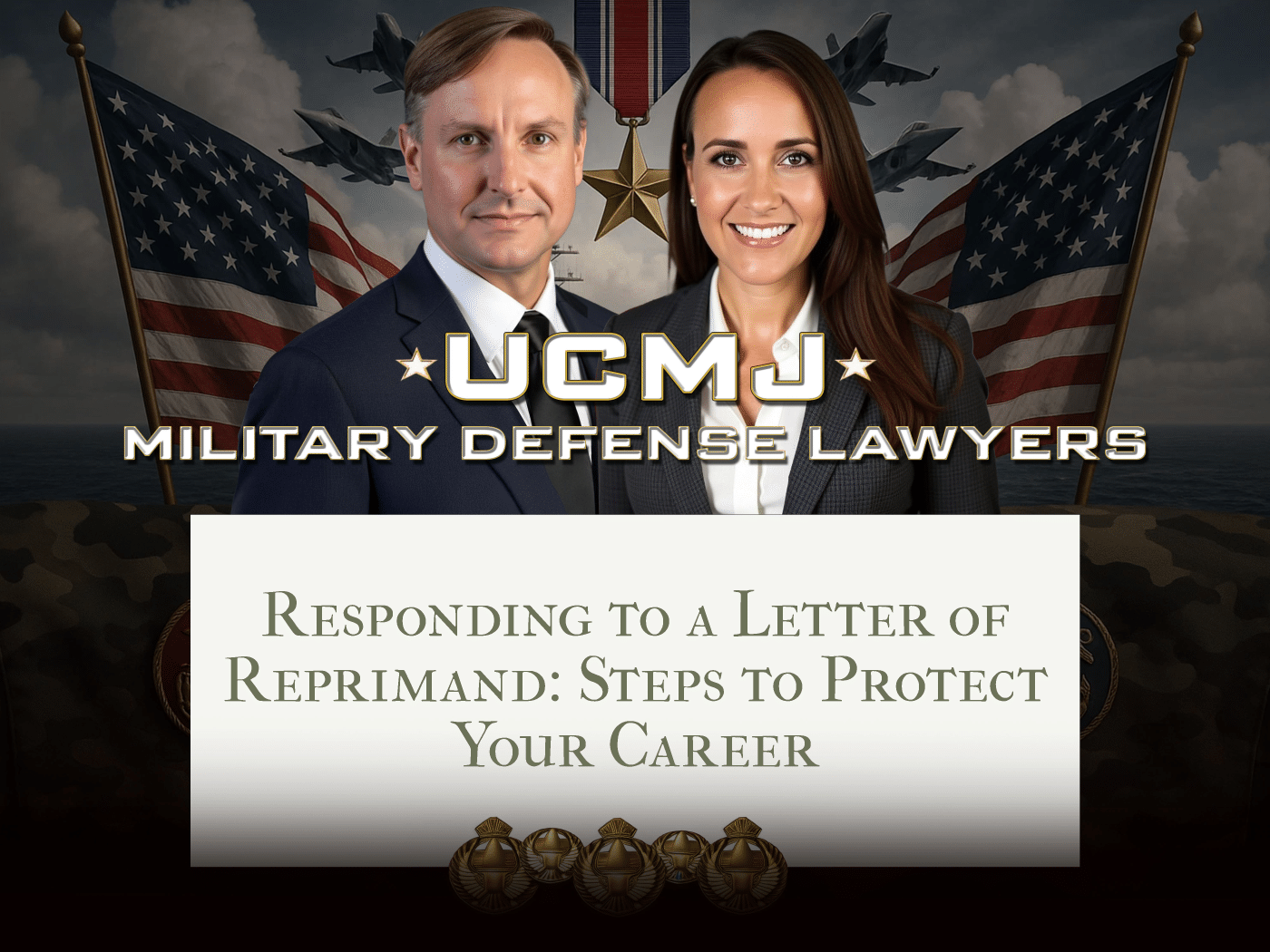Receiving a Letter of Reprimand can be a deeply unsettling experience that may leave you anxious about the future of your career and uncertain about the next steps. Fortunately, crafting a well-thought-out Letter of Reprimand Response can provide an opportunity to clarify misunderstandings, show accountability, and potentially mitigate long-term damage. Whether you’re in the military, a corporate setting, or a professional environment, how you handle this response can make a significant impact on how your credibility and professionalism are viewed. Taking the time to respond carefully and respectfully may not just preserve your career but enhance your reputation for responsibility and maturity. This article will walk you through how to respond to a Letter of Reprimand strategically, covering what it means, why it matters, and how legal guidance from an experienced team like Gonzalez & Waddington can help protect your career and peace of mind.
Understanding a Letter of Reprimand and How You Should Respond
A Letter of Reprimand is a formal written notice issued by an employer, commanding officer, or supervisor to document behavior or actions considered unacceptable or inappropriate. It is not just a warning—it can carry serious implications for your career growth and reputation. A Letter of Reprimand Response is your written reply to this letter. It offers you a crucial opportunity to present your side of the story, provide context, and show a commitment to improvement.
For instance, a military service member might receive a reprimand for inappropriate conduct during duty. Their response could include a timeline of events, supporting documentation, and character references. In a corporate environment, an employee may be reprimanded for missing project deadlines. Their response might explain mitigating circumstances while proposing a corrective action plan. Regardless of the setting, a strong and respectful response highlights professionalism and may influence how the reprimand is interpreted over time.
Why Taking the Time to Respond to a Letter of Reprimand Really Counts
Ignoring or hastily replying to a Letter of Reprimand can cause lasting consequences. Responding thoughtfully can influence how supervisors, peers, and future employers perceive you. Your response becomes part of your official record, meaning it can shape how future disciplinary matters, promotions, or legal actions are handled. Taking the time to defend your character and correct the record may even lead to a modification or removal of the reprimand in some cases.
Additionally, responding appropriately gives you the chance to show responsibility and a willingness to correct any missteps. This can be especially impactful in military or governmental settings where integrity and duty are held to strict standards. A well-structured response also demonstrates that you understand the seriousness of the matter and are committed to resolving it constructively.
- A junior officer receives a reprimand for disregarding a procedure. Failing to respond may damage promotion prospects permanently.
- An employee is reprimanded for misconduct that was actually a misunderstanding. Without a response, the error becomes part of their permanent HR record.
- A government contractor receives a reprimand tied to project delays. A strong response helps maintain security clearance and future work eligibility.
How the Reprimand Response Process Actually Works Around the World
- Step 1: Review the reprimand thoroughly and understand the specific allegations or reasons cited in the letter.
- Step 2: Begin drafting your response. Include relevant facts, timelines, and context. Be respectful, factual, and concise.
- Step 3: Submit your written response within the deadline. It often becomes part of the official record, so keep a copy for your own records.
Top Strategies to Handle Your Letter of Reprimand Response Successfully
Common Questions About Reprimand Responses in the Global Workplace
How Gonzalez & Waddington Offers Legal Guidance Clients Can Rely On
At Gonzalez & Waddington, we understand how damaging a Letter of Reprimand can be—not just professionally, but personally. Our experienced legal team is dedicated to helping clients craft precise and legally sound responses that address both the content and tone of the reprimand. With a background in handling complex military and federal employment matters, we ensure our clients are not left navigating the system alone.
We work closely with each client to assess the claim, gather documentation, identify inconsistencies in the original letter, and write compelling responses. Our goal is to preserve your career, reputation, and mental well-being during challenging times. With Gonzalez & Waddington on your side, you gain more than strategic advocacy—you gain a team committed to protecting your future and your good name.



